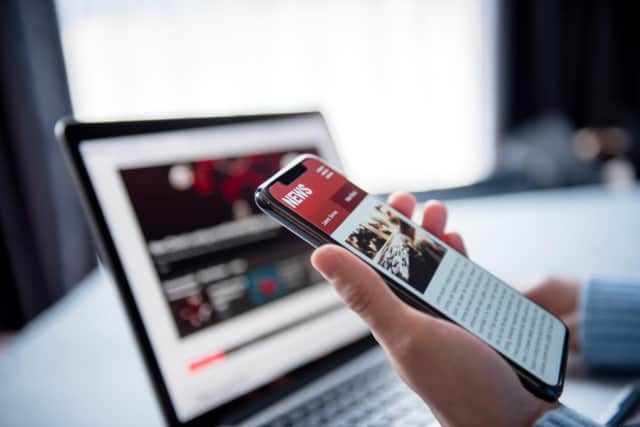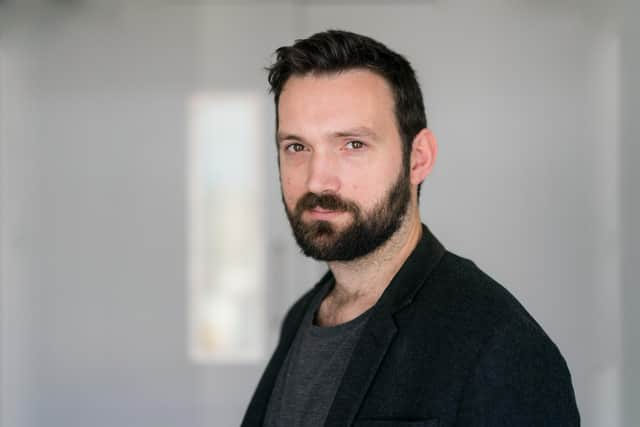Studying the media helps us make sense of the world - Dr Dominic Hinde


Like Sociology, another equally vital subject that is often derided by people who have never studied it, media education helps us to make sense of a world that at times seems entirely unfathomable. Understanding not just what is in the media, but how it comes to be made, is critical to understanding our everyday reality as part of what media researchers refer to the ‘mediatisation’ of everyday life.
Go onto a news site or social media at the moment in Scotland and it won’t take you long until you come across debates of all kinds, many of them confected or overblown to meet a perceived need for voices. Brexit, the constitutional question, trans rights and a host of other contemporary topics invite engagement, right down to the explicit question ‘do you agree with this?’ that graces the social media output of newspapers and political parties alike.
Advertisement
Hide AdAdvertisement
Hide AdOnce we engage, we often sign over not only our data, but our sanity too. The evolution of online news and debate means that we now inhabit what the author Patricia Lockwood calls a place we can never leave, a kind of playground with no exit, or what she more disparagingly describes as ‘the disintegration of my own mind’.


The internet has not broken politics, as politics has never been a perfect system, but its speed has created a permanent library of temporary truths. This is important because media is not some ephemeral arena of mass entertainment but the habitat in which we now all live, in which decisions that govern life or death, prosperity or poverty, and opposition or understanding are made. Politics has very real or material outcomes, but the transience of media debate also encourages us to see these very real problems as representational only.
This is one of the reasons contemporary debates in the so-called culture wars, talk of ‘cancel culture’ and freedom of speech in universities can occur divorced from the reality on the ground. In a world where all points of view are valid, it becomes difficult to engage meaningfully with very real problems such as climate change and inequality, racism and discrimination, as each is weaponised and warped beyond recognition.
The popularity of the filmmaker Adam Curtis’ approach to politics as a form of postmodern spectacle – currently screening on the BBC - taps into a public awareness of this process. This is a landscape of confusion, sleight of hand, misdirection, and nods to nameless forces that shape our world. Curtis’ modus operandi is offering people an explanation of the world they live in but struggle to understand, delivered in an incoherent narrative style that reinforces the idea of a world of shadowy actors and manipulators. In truth, these forces are not nameless. They are think-tanks, PR bureaus and lobbying groups, tech companies and political parties. We know who they are, and we have their addresses and telephone numbers, and we actually understand very well how they work.
It is worth being mindful of how speed and a culture of whataboutism allow sins to be easily forgotten and where political comms strategies attempt to annex and manipulate voters’ views and beliefs. Discussions about ‘fake news’ and ‘post-truth’ need to take place within an understanding of the technologies that got us here and the political economy of the media itself. This is not an organically occurring system but one over which we actually have a surprising amount of control if we see it for what it is.
Political communication is not just about training people to act out their fantasies of striding down the corridors of power but giving everyone the tools to exercise power in the democratic space. In a world drowning in media, studying it is more important than ever before.
Dr Dominic Hinde Lecturer in Sociology, University of Glasgow. Dr Hinde was previously Lecturer in Digital Media and Communications at Queen Margaret University
Comments
Want to join the conversation? Please or to comment on this article.